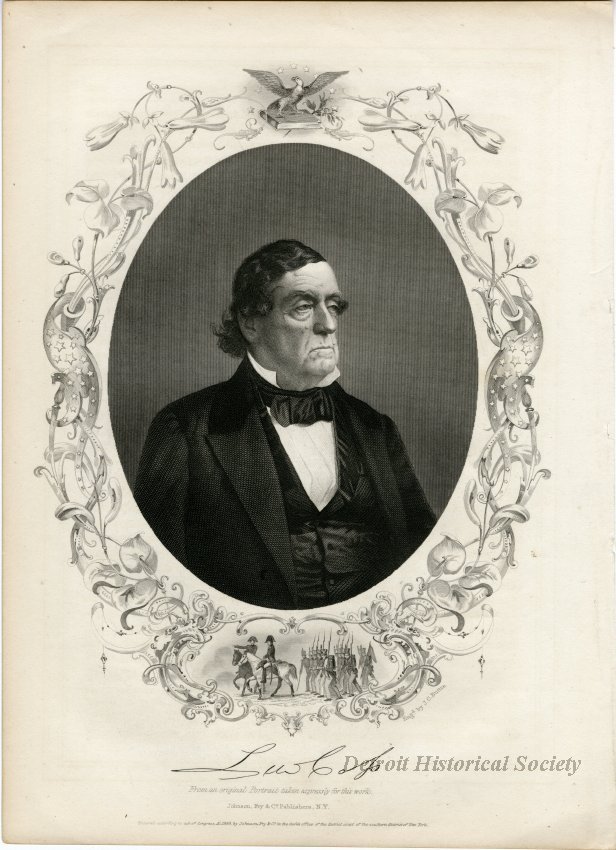Lewis Cass is one of Detroit’s most renowned politicians. He served as territorial governor for 18 years and later shared the national political stage with such notables as John Calhoun, Henry Clay, and Daniel Webster. He served as a U.S. senator, secretary of war, envoy to France, secretary of state, and was a presidential candidate three times, earning the Democratic Party nomination in 1848.
Cass was born in Exeter, New Hampshire on October 9, 1782. After graduating from Philips Exeter Academy and working as a teacher in Wilmington, Delaware, he followed his family to Ohio. There, he studied law and became a member of the state house of representatives in 1806. He was appointed United States marshal for the district of Ohio and enlisted in the United States Army during the War of 1812. Concluding the war as a brigadier general, he was made governor of Michigan Territory, holding that position from 1813-1831. Cass became an outspoken advocate for Michigan. He co-founded the Historical Society of Michigan, penned the state motto and designed the Great Seal.
Cass’s household included a slave, euphemistically referred to as a servant, named Sally who he later sold to Alexander Macomb, another one of Detroit’s wealthy slave owners, for $300. Following the Mexican American War, as debate raged over slavery in the territories, Cass advocated for, and originated the phrase, “Popular Sovereignty,” meaning territory residents should decide the issue. He later voted for the Compromise of 1850.
Following his years as territorial governor, Cass had a long career in Washington as a senator and in the cabinets of two presidents. Serving as secretary of war under President Andrew Jackson, Cass put into action the policy of Indian removal, culminating in the infamous Trail of Tears, in which thousands of Native Americans died in a forced march from southeastern states to land west of the Mississippi River. Cass was considered to be an expert negotiator with Native Americans, and earlier, as governor, had leveraged his position to coerce tribes around the Great Lakes to sell their lands to the U.S. government.
As national events moved toward open conflict and a civil war, Cass took a strong stance on preserving the Union, ultimately resigning his position as secretary of state when he and President James Buchanan could not resolve their differences on slavery and secession.
Cass returned to Detroit in 1861 after the election of Abraham Lincoln. Throughout the Civil War, he strongly supported the Union cause. After an illustrious career, Lewis Cass died on June 17, 1866 and was buried in Elmwood Cemetery. He is one of two Michigan leaders in the National Statuary Hall Collection at the U.S. Capitol and numerous sites in Michigan bear the Cass name. His papers are at the Clements Library of the University of Michigan.

